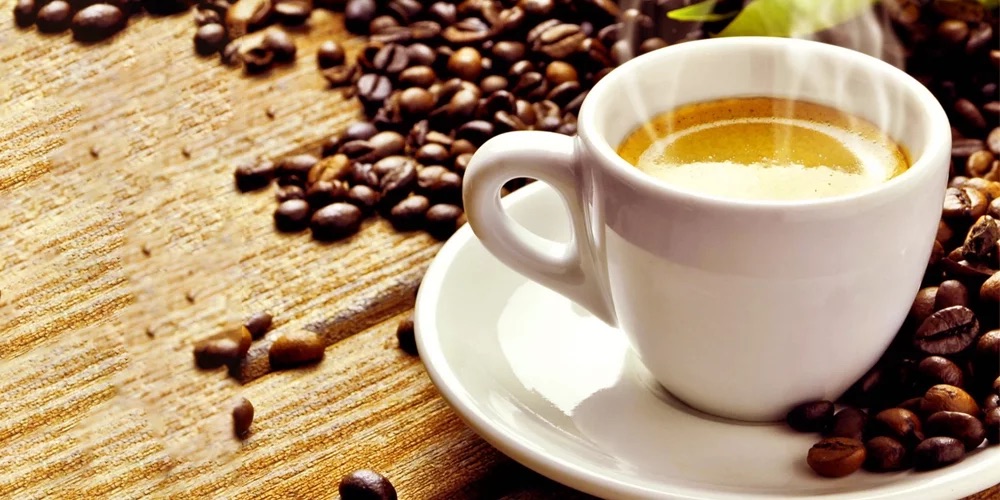In addition to fluids, many athletes incorporate caffeine into their competition routine. But does caffeine truly have the potential to boost our performance?
This blog entry by Andreas Gonseth was provided by Fit for Life. Fit for Life is the Swiss magazine for fitness, running and endurance sports. Would you like to read such articles on a regular basis? Then click here.
Caffeine has been a topic of controversy for years. Just 15 years ago, it was classified as a doping substance. However, restrictions on caffeine consumption have since been lifted, partly because caffeine, one of the oldest stimulants and medicinal products, is widely popular in society through coffee, chocolate, or tea. When considering caffeine consumption, here are some key points to keep in mind:
The effect of caffeine
Undoubtedly, caffeine has a performance-enhancing effect for many individuals. It heightens attention, lifts mood, and reduces fatigue. Beyond stimulating the nervous system, caffeine also improves our fat metabolism and boosts energy supply in the body. Due to the potential variability in the effects of caffeine in different foods and the challenge of determining exact caffeine amounts, scientific studies often utilize pure caffeine in their experiments.
The ideal amount
Performance enhancement is likely with caffeine doses ranging from 1 to 6 mg per kg of body weight. However, a plateau effect is observed from 3 mg/kg onwards, where the impact levels off significantly. Doses exceeding 6 mg/kg often result in stress-like symptoms such as tremors, restlessness, irregular heart rate, palpitations, and headaches. Sleep disorders are another common consequence, and during competitions, an “overdose” of caffeine can strain the gastrointestinal tract.
What contains caffeine?
For a 70 kg man, performance improvement is expected with around 100-200 mg of caffeine intake. A cup of coffee contains, depending on the preparation method, 50-150 mg of caffeine, a cup of tea 20-50 mg, an energy drink can (250 ml) about 80 mg, and a 250 ml Coca-Cola 25 mg. Chocolate also contains caffeine, with a bar of dark bitter chocolate containing up to 70 mg and a bar of milk chocolate about 15 mg.
In sports, a continuous supply of caffeine can be achieved through various sports drinks and caffeine-rich sports gels (e.g., a Powerbar gel with 50 mg). Some individuals even opt for special, highly concentrated caffeine liquids (e.g., Sponser Activator with 160 mg per portion or the Red Bull shots with 80 mg per shot).

«Peak» after one hour
The stimulating effect of caffeine is typically felt around half an hour after consumption. The maximum effect occurs after about one hour, with a decline starting after 2 to 3 hours.
Different kinds of caffeine
Caffeine found in many gels comes from the Guarana berry, in espresso from the coffee bean, and in chocolate from the cocoa bean. Other caffeine sources include the kola nut (Coca-Cola), mate leaves, or tea plants. The specific effects of different caffeine sources haven’t been extensively researched and are influenced by other ingredients, making reactions highly individual.
Reduced effect for coffee lovers
Regular coffee drinkers may experience a diminished performance-enhancing effect. Consequently, some athletes abstain from coffee for several weeks or months before a competition to reap the benefits of espresso or Coca-Cola on the competition day.
Avoid carbonation
During competitions, people typically avoid consuming Coca-Cola ice-cold and carbonated, opting for it tepid and without carbonation. This is because carbonic acid can induce belching, and cold drinks can strain the gastrointestinal tract.
Caffeine pills
Caffeine can also be consumed in pill form, with each pill containing 40 mg of caffeine. A pack of 22 pills can be purchased for CHF 11.50 at the pharmacy.
Careful!
Caffeine consumption is not recommended for children under the age of 12. According to Swiss food regulations, special drinks containing caffeine (such as energy drinks) are not permitted to exceed 32 mg per 100 ml.
Test beforehand!
As with all supplements, the same principle applies to caffeine: it’s crucial to test different products beforehand. Conduct self-tests and determine which caffeine amount provides the desired boost and at what moment!

